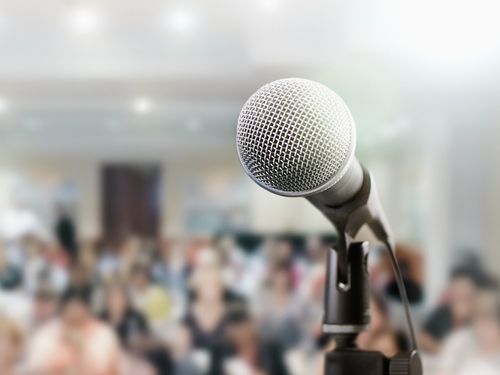
BSCS Science Learning Seminar Series
BSCS Science Learning is a place of learning, scholarship, and reflective practice. Dedicated to hearing from scholars, educators, scientists, designers, and other professionals, the BSCS Seminar Series brings insightful speakers to share ideas and present their latest work to our community conversations.
We acknowledge and recognize the experts and colleagues in the broader STEM community who are volunteering to speak to our staff. More importantly, we’d like to share their talks with educators who are invested in their own professional growth.
Below you’ll find information about our speakers and links to their talks.
Speakers
- Eve Manz – December 3, 2025
- William A. Sandoval – February 28, 2024
- Vanessa Lujan – February 7, 2024
- John Rudolph – September 27, 2023
- Ben Dubin-Thaler & Latasha Wright – May 31, 2023
- Déana Scipio – March 29, 2023
- Jennifer Frazier – November 16, 2022
- Angela Calabrese Barton & Edna Tan – September 21, 2022
- Susie Wise – August 31, 2022
- Michelle Wilkerson – May 25, 2022
- Cindy Passmore – April 27, 2022
- Mon-Lin Monica Ko – March 23, 2022
- Joe Krajcik – February 16, 2022
- Melanie Peffer – October 27, 2021
- Gregory Radick – September 29, 2021
- Thomas M. Philip – August 25, 2021
- Alexis Patterson – July 21, 2021
- Saul Perlmutter – June 30, 2021
- Michael Menchaca – May 26, 2021
- Todd Campbell & Okhee Lee – May 19, 2021
- Ann Edwards – April 28, 2021
- Jessica Parker & Julie Yu – April 21, 2021
- Jill Wertheim – March 31, 2021
- Batya Friedman & Nick Logler – March 17, 2021
- Heidi Carlone – February 3, 2021
December 3, 2025
Eve Manz, Ph.D., Boston University Wheelock College of Education and Human Development
Topic: Productive Uncertainty in Science Education: Engaging Students in Meaningful Science Practice
Abstract:
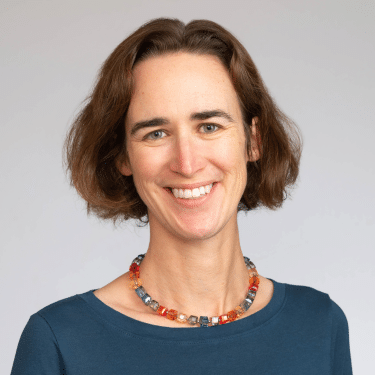
After seven years of working with elementary teachers to re-design science investigations to more meaningfully engage young students in science and engineering practices, my collaborators and I recently published Productive Uncertainty in Science Education: Engaging Students in Meaningful Science Practice. In this talk, I’ll review the key ideas that anchor the book. I’ll go behind the scenes to consider the co-design and design-based research approaches that we used to turn values and research-based learning principles into investigations, tools, and understandings of necessary teacher supports. I’ll then engage the audience with examples of curriculum design principles, tools, and professional learning and implementation approaches, sharing our team’s learning and inviting discussion.
Speaker Bio:
Dr. Eve Manz is an associate professor of science education at Boston University Wheelock College of Education and Human Development. She works closely with elementary teachers and instructional leaders to develop new approaches to science instruction that center student and teacher sense-making. Her research explores how children and teachers negotiate uncertainty, model phenomena, carry out investigations, and build explanations—moving away from “cook-book” labs toward classroom experiences that mirror the epistemic and relational work of scientists.
February 28, 2024
William A. Sandoval, Ph.D., North Carolina State University
Topic: Mapping conjectures through educational design research
Abstract:
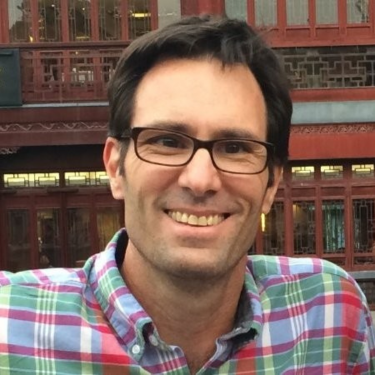
Since my paper on conjecture mapping came out in Journal of the Learning Sciences a decade ago, the technique has been widely adopted in the learning sciences as a way to organize design-based research. It has also generated a lot of questions about what a conjecture map is really for and how they should be built. This talk will briefly lay out my perspective on what conjecture maps are for, how I use them, and why I think they are valuable. Following this, I hope to engage in an audience-led discussion about conjecture mapping.
Speaker Bio:
William (Bill) Sandoval is a Professor, and Head of the Department of STEM Education at NC State. Before joining NC State, he spent 25 years in the School of Education & Information Studies at UCLA where he was also the faculty director of the school’s Educational Leadership (ELP) Program. His research focuses on teaching practices that can support scientific explanation and argumentation, as well as organizing science instruction in school so that the science which children learn has value to them outside of school. Sandoval has published widely across the fields of learning sciences, educational psychology, science education and cognitive development. His seminal paper on conjecture mapping for design-based research has influenced many researchers. He is a past president and elected fellow of the International Society of the Learning Sciences and elected fellow of the American Association for the Advancement of Science. He received his Ph.D at Northwestern University in the Learning Sciences and a B.S. in Computer Science from the University of New Mexico.
February 7, 2024
Vanessa Lujan, Ph.D., Director of the Center for K-12 Science, Lawrence Hall of Science
Topic: Leading the Charge for Science: Professional Learning to Empower Leaders Towards Equity-driven Systems Change
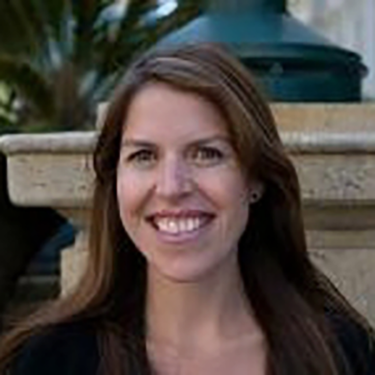
Abstract:
Engaging in professional learning is instrumental in building the capacity of educators and in reinforcing the value of science across schools and districts. At the Center for K-12 Science, we design and facilitate experiential, ongoing, research-based, and collaborative professional learning for instructional leaders and teachers. We build the capacity of our participants through tested approaches that incorporate participant knowledge building, knowledge sharing, and transfer of learning into purposeful knowledge use…and this includes leaders at all levels! Systems-level thinking and organizational change models have transformative potential for improving K-12 science. The Center has tested approaches for fostering equitable change that are both supportive of leaders in their contexts and help them to drive meaningful transformation. Engaging leaders and leadership teams in applying systems-level thinking to their contexts is a high-leverage strategy for driving equitable change, as we collectively gain a deeper understanding of the features of systems change for disrupting the deprioritization of science in K-12 systems.
Speaker Bio:
Vanessa Lujan is Director of the Center for K-12 Science at the Lawrence Hall of Science at the University of California at Berkeley. This center is dedicated to disrupting inequities and creating sustainable change in K-12 systems, and fostering inclusive K-12 science learning environments through our work with leaders, partnerships and networks, and development of high-quality instructional materials. Dr. Lujan’s research expertise includes understanding the intersection of ethnic and gender identity as it relates to science teaching and learning. She has served as a workshop panel member for both the National Research Council’s “Successful STEM Education in K-12 Schools” (2011), and “Enhancing Science and Engineering in Prekindergarten through Fifth Grade” (2020), and has experience teaching high school and undergraduate science, developing undergraduate science curriculum, and program leadership of a comprehensive district community and parent involvement program. Lujan has a Ph.D. and M.A. in Science Education from the University of Texas at Austin, and a B.A. in Human Biology from Stanford University.
September 27, 2023
John L. Rudolph, Ph.D., University of Wisconsin-Madison
Topic: The Myths of Science Education
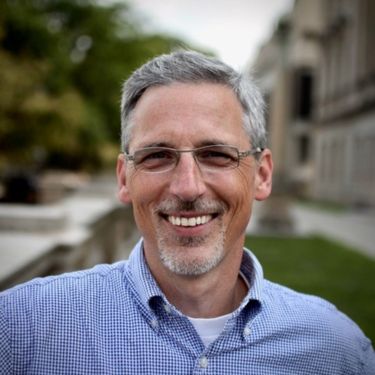
Abstract:
Few people question the importance of science education in American schooling. It’s the key, after all, to economic growth, develops the ability to reason more effectively, and enables us to solve everyday problems. Good science teaching results in all these benefits and more—or so we think. But what if all this is simply wrong? What if the benefits we assume science education produces turn out to be an illusion, nothing more than wishful thinking? In this talk, Rudolph examines the reasons we’ve long given for teaching science and assesses how they hold up to what we know about what students really learn in science classrooms and what research tells us about how people actually interact with science in their daily lives. The results may be surprising. Instead of more and more rigorous traditional science education to fill the STEM pipeline, Rudolph challenges us to think outside the box of traditional instruction and makes the case for an expansive science education aimed instead at rebuilding trust between science and the public—something desperately needed in our current era of impending natural challenges and science denial.
Speaker Bio:
John L. Rudolph is the Vilas Distinguished Achievement Professor of Science Education at the University of Wisconsin-Madison. His main area of research focuses on the history of science education in American high schools. He also writes about issues related to the nature of science in the present-day school curriculum and on how the history, philosophy, and sociology of science have been used in science education research. He received his Ph.D. from the University of Wisconsin-Madison in curriculum and instruction and history of science. Prior to his current appointment, he spent a number of years teaching physics, chemistry, and biology in middle schools and high schools across Wisconsin. In addition to his position in C&I, he has affiliate appointments in the Department of Educational Policy Studies and the Robert and Jean Holtz Center for Science and Technology Studies. He is past editor-in-chief of the Wiley & Sons journal Science Education and National Academy of Education/Spencer Postdoctoral Fellow.His work has been funded by the National Science Foundation, the Spencer Foundation, and the Wisconsin Center for Education Research.
May 31, 2023
Ben Dubin-Thaler, Founder and Executive Director, & Latasha Wright, Chief Scientific Officer
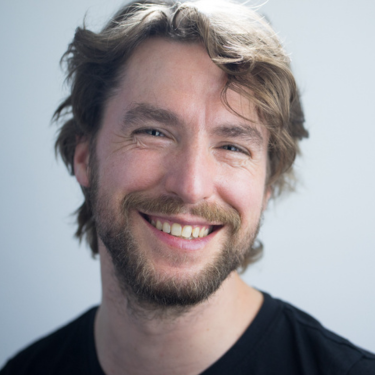
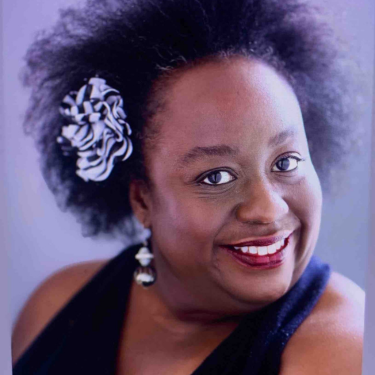
Topic: BioBus’s Community Science Approach
Abstract:
BioBus helps K-12 and college students in New York City discover, explore, and pursue science. We focus on students excluded from the scientific community due to factors such as race, gender, economic status, and physical access. BioBus students connect with scientists from diverse backgrounds, learn lab and research skills, practice science communication, and take steps to become the next generation of scientists and problem-solvers, making the world better for all of us.
Across our science pathway, BioBus provides research and mentoring experiences no classroom can match, and long-term support for students that academia and industry struggle to provide. In pursuit of our goal of giving young scientists in communities excluded from science the opportunity to reach their full scientific potential, we work toward two objectives. First, we seek to expand our full pathway of science programming in our focus areas of Harlem and the Lower East Side of Manhattan to increase the number of young people in communities of science practice. Second, we aim to provide this full pathway in additional communities, such as the Bronx and Boston. Using mobile laboratory programs to initiate partnerships with schools and community-based organizations in new areas, we learn about community needs and offer to develop community laboratory infrastructure as needed.
Speaker Bios:
Ben Dubin-Thaler, Ph.D., Founder and Executive Director, created the BioBus in 2008 after completing his Ph.D. in Biology as well as his B.A. in Physics and Mathematics at Columbia University. “Dr. Ben,” as he is known to students aboard the BioBus, started BioBus as an experiment to test his hypothesis that, given the opportunity to use research-microscopes to perform hands-on experiments, anyone would be excited about science and want to do more. Ben and his team create a new kind of laboratory space that is empowering, accessible, un-intimidating, and that facilitates scientific engagement amongst populations historically underrepresented in science professions. Ben, now a recognized nonprofit and science education leader who is regularly invited to speak and consult for other organizations, hopes to create a future in which people from all cultures and backgrounds have equal opportunities to practice and understand science.
Latasha Wright, Ph.D., Chief Scientific Officer, received her Ph.D. from NYU Langone Medical Center in cell and molecular biology. She continued her scientific training at Johns Hopkins University and Weill Cornell Medical Center. She has co-authored numerous publications, presented her work at international and national conferences. BioBus enables Latasha to share her love of science with a new generation of scientists. Latasha spearheaded the creation of the first BioBase community lab, the BioBus internship program, and our Harlem expansion. Everyday that Latasha spends teaching students about science in this transformative environment helps her remember that science is fun. She loves sharing the journey of discovery with students of all ages.
March 29, 2023
Déana Scipio, Ph.D., Director of Graduate and Higher Education Programming – IslandWood
Topic: Pedagogies of Joy: re-centering our teaching and learning practices in joy, relationship, and community.
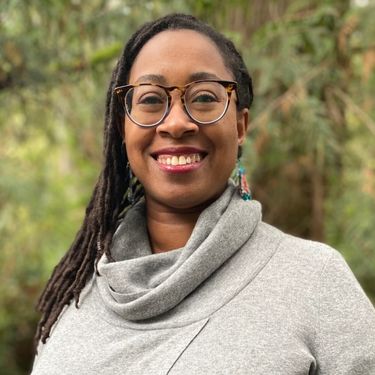
Abstract:
Pedagogies of Joy (POY) are approaches to learning, design, and implementation that create opportunities for unexpected and transformational learning across multiple contexts and settings. Ross Gay speaks about joy as an entanglement and names the ways in which it connects individuals to communities. I situate POY in a body of research oriented towards dignity-affirming learning for children and youth from non-dominant communities and their teachers (many of whom come from dominant communities ) drawing on sociocultural frameworks, designs, and methodologies. My work lives in the nexus of intersectional environmental education and higher education. In this talk, I draw upon multiple examples to demonstrate the transformative power of POY for teaching and learning through frameworks of justice, equity, diversity, and inclusion.
Speaker Bio:
Dr. Scipio has focused much of her career on broadening participation for learners from non-dominant communities in Science, Technology, Engineering, and Math (STEM). She has designed and studied learning environments within formal and informal contexts and focuses on equitable design, creating spaces for learners from non-dominant groups to demonstrate and create disciplinary expertise, architecting community-university partnerships to facilitate multidirectional learning, and helping experts and mentors build pedagogical capacity. She brings this focus to her work as Director of the Graduate Program in Education for Environment and Community, School Overnight, and Community Education programs at IslandWood as she works to further integrate justice, equity, diversity, and inclusion. This work entails building partnerships, conducting research, designing, and implementing a rich learning environment for graduate students who come to IslandWood.
November 16, 2022
Jennifer Frazier, Science Communication Lab
Topic: Creating visualizations for the public through collaboration: field notes from server farms to cacao farms
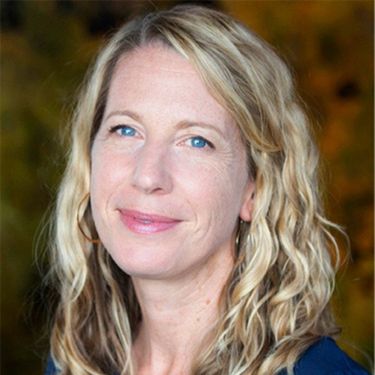
Abstract:
Engaging the public with the critical issues of our time often means engaging them with data. Rising global temperatures, COVID case rates, and extreme weather events are often
shared through curves, maps, and charts to reveal phenomena that have dramatic impacts on people’s daily lives. But how do we adapt these visualizations so they can be easily interpreted
and explored in informal learning settings? In this talk, I will share three projects focused on adapting data visualizations into experiences for the public, including shifts in the design process toward community-centered design. First, I will share the findings from Living Liquid, a largescale project at the Exploratorium to adapt scientific datasets into exploratory exhibits with computer scientists, learning researchers, biologists, and museum visitors. I then contextualize the findings from Living Liquid into a larger research agenda defined by the field through the VISUALISE conference project. Finally, I will share strategies for making visualization and exhibit design more inclusive through work on the Cambio and Plants projects at the Exploratorium, and new projects in the Data Engagement Initiative at the Science Communication Lab. These projects were funded by the National Science Foundation and the Gordon and Betty Moore Foundation.
Speaker Bio:
Dr. Jennifer Frazier is the Senior Director of Strategic Initiatives at the Science Communication Lab, a non profit focused on engaging the public with contemporary science through film and events. Dr. Frazier’s work focuses on creating public experiences that engage the public with science through new tools, artworks, and live programming. For eighteen years, she was a Senior Scientist and Curator at the Exploratorium, where she co-led the museum’s program in biological sciences. Dr. Frazier served as the principal investigator on several grants that pioneer new genres of exhibits including the NSF-funded Living Liquid, the Center for Cellular Construction, the VISUALISE Conference, and the Moore-funded Ocean Observatory and Plants. Before joining the Exploratorium in 2004, Dr. Frazier worked at the National Academy of Sciences and PBS. She is also currently an Adjunct Professor in Biochemistry at the University of California at San Francisco (UCSF), leading efforts to train researchers in public engagement with science. Dr. Frazier has a Ph.D. in Cell Biology from UCSF and a B.S. in Genetics and Bioethics from the University of California, Davis. She has been an NSF Fellow, an AAAS Mass Media Fellow, UCSF Alumni of the Year, and winner of the NSF/AAAS Scientific Visualization Challenge.
September 21, 2022
Angela Calabrese Barton, University of Michigan, & Edna Tan, University of North Carolina at Greensboro
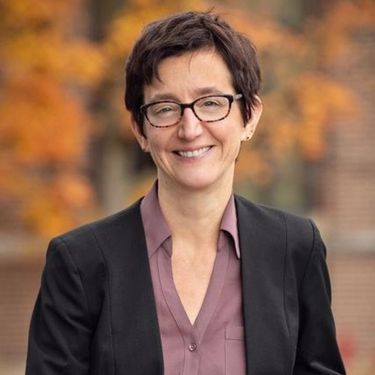
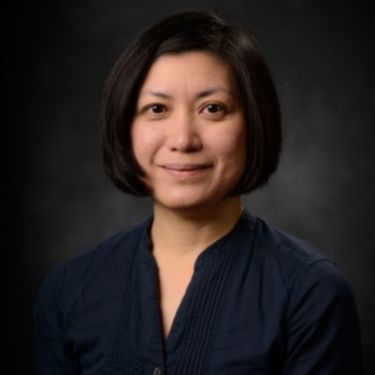
Topic: Designing for Social Justice in Science Teaching and Learning: Working towards Rightful Presence
Abstract:
Current discourses of equity in teaching and learning are framed around calls for inclusion, grounded in the extension of a set of static rights for high-quality learning opportunities for all students. In this seminar we provide an overview of Rightful Presence, a guiding framework for social justice science teaching, developed on-the-ground with partner teachers in Research Practice Partnerships. This framework highlights the limitations of equity as inclusion, which does not adequately address the ways in which systemic injustices manifest in local classroom practice. Rightful presence centers youth having legitimate membership in their science learning community because of who they are and not who they should be. Rightful presence draws on the ingenuity, knowledge and practice youth bring to learning and doing science. Rightful presence orients the field towards new forms of teaching that restructure learning opportunities such that the lives of all youth are made visible and integral to science, especially those lives made invisible in STEM through a history of systemic racism and heteropatriarchy. Three tenets for guiding the use of this framework in teaching and learning are offered. Case studies from partner teacher classrooms across settings will be used to illuminate key points.
Resource readings
- Calabrese Barton, A. & Tan, E. (2020). Beyond Equity as Inclusion: A Framework of ‘Rightful Presence’ for Guiding Justice-oriented Studies in Teaching and Learning. Educational Researcher.
- Calabrese Barton, A., Tan, E. & Birmingham, D. (2020). Rethinking High Leverage Practices in Justice-oriented Ways. Journal of Teacher Education.
- Calabrese Barton, A. & Tan, E. (2019). Designing for rightful presence in STEM: Community ethnography as pedagogy as an equity-oriented design approach. Journal of the Learning Sciences. DOI: 10.1080/10508406.2019.1591411.
- Schenkel, K., Bliesener, S., Calabrese Barton, A., & Tan, E. (2020). Community Ethnography Teacher’s Toolkit. Science Scope
Speaker Bios:
Angela Calabrese Barton is chair of Educational Studies and professor of Science Education and the Learning Sciences at the University of Michigan. She studies approaches to science teaching and learning in school and community settings that disrupt/transform systemic injustices in learning environments serving minoritized youth and that promote justice-oriented outcomes, including what matters to people in the here-and-now and towards imagined social futures. A former chemistry teacher and life-long community educator, she has also designed and taught community-based STEM and maker education for over two decades. She takes an historicized and future-oriented ecological and participatory approach to her critical ethnographic and design-based research, giving witness to and learning with youth and community partners. Calabrese Barton has served as a WT Grant Foundation Distinguished Fellow, and is a Fellow of the American Education Research Association. Her research has won numerous awards, including the 2020 Exemplary Contributions to Practice-Engaged Research Award an American Education Research Association wide award. Her research with Edna Tan on designing for justice-oriented STEM teaching and learning in the middle grades won the 2020 best paper award in the for the Journal of the Learning Sciences (Calabrese Barton, A. & Tan, E., 2019) and the 2021 best article award for the Journal of Teacher Education (Calabrese Barton, A. & Tan, E., 2020).
Edna Tan, PhD., is Hooks Distinguished Professor of STEM education at the University of North Carolina at Greensboro. Her collaborative research investigates the design, support and outcomes of equitable and consequential STEM learning for historically minoritized youth across learning contexts and over time. Current National Science Foundation funded projects include longitudinal, community-engaged research with minoritized and refugee youth engaging in makerspace work, focused on identifying the elements of an authentic, community-owned and youth-centered making space; and working with middle school teachers in co-developing and enacting an engineering for sustainable communities curriculum that attends to students’ identity work and engineering toward justice-oriented ends. Her research has been published in the American Educational Research Journal, Teachers College Record, the Journal of the Learning Sciences, Journal of Research in Science Education, Science Education, among others. In 2020, Dr. Tan was elected as a Fellow of the American Association for the Advancement of Science.
August 31, 2022
Susie Wise, Stanford d.school
Topic: Design for Belonging: How to Build Inclusion and Collaboration in Your Communities
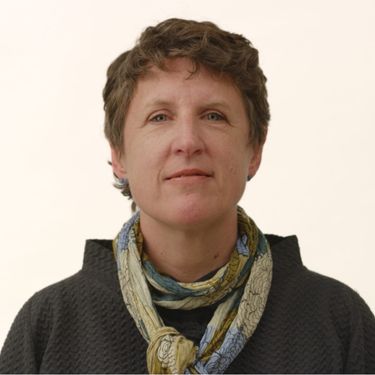
Abstract:
Can you design belonging? Susie Wise says yes. And no. Belonging is a feeling. Everyone experiences it differently. What you can design are all kinds of things that help the feeling to emerge: rituals that bring us together, spaces that help create calm, roles that develop authentic responsibility and systems that are respectful. Susie will share from her new book Design for Belonging: How to Build Inclusion and Collaboration in Your Communities. With concrete frameworks to feel it, see it, shape it, she offers accessible ways for leaders to move beyond current, sometimes-siloed DEI practices, to use design mindsets to create change in organizations.
Speaker Bio:
Dr. Susie Wise is a designer and educator. She is an equity design ally with a focus on culture change and building belonging in organizations. Susie combines design research and co-design practices to create change in the social sector. She is a Co-Creator of Liberatory Design and her new book is Design for Belonging: How to Build Inclusion and Collaboration in Your Communities (2022). She has a PhD in the Learning Sciences from Stanford University.
May 25, 2022
Michelle Wilkerson, University of California, Berkeley
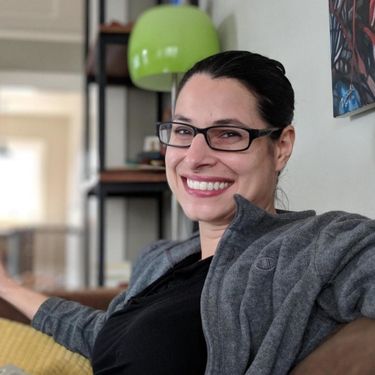
Topic: Learning through Data, Experience, and Histories in the Writing Data Stories Project
Abstract:
The current moment in science education is full of promise For the past 3 years, I have had the honor of collaborating with teacher educators, software developers, literacy scholars, science and mathematics teachers, and young people to explore how storytelling might deepen and broaden students’ engagement with data. “Writing Data Stories” is an NSF-funded project that explores how students might more deeply engage with both science and data through telling stories with and about the socioscientific datasets they analyze. We refer to these stories as syncretic data stories, to emphasize the productive tensions that can emerge from putting aggregated data in direct conversation with personal narrative. Although the project was originally conceptualized as a longitudinal collaborative curriculum design effort, the disruptions and constraints of the COVID-19 pandemic have led us to develop a more flexible ecology of pedagogy, curriculum materials, and technologies to engage students in data storytelling. In this presentation I will share the core theories and products that have emerged from the project so far. I will also illustrate through analyses of teacher and student work in classrooms and after-school environments some of the successes and challenges of our approach.
Speaker Bio:
Michelle Hoda Wilkerson is an Associate Professor in the Graduate School of Education and the Graduate Group in Science and Mathematics Education at the University of California, Berkeley. Her research broadly explores the question: How is computing changing what is important to teach and learn in middle and high school science and mathematics classes?This has led her to study how young people learn with and about scientific computing artifacts such as simulations, data analysis tools, and interactive visualizations. Recently, she has explored how learners’ relationships with data — for instance as consumers, subjects, and creators of data — shapes how they understand and engage in data analysis. Michelle’s scholarship has been supported by the National Science Foundation (NSF), the George Lucas Education Foundation, and Google Education Research. Her work has appeared in general and STEM-specific venues including Educational Researcher, Journal of the Learning Sciences, Science Education, and the Journal of Science Teacher Education and in 2020, the AERA’s Jan Hawkins Award for Humanistic Research and Scholarship in Learning Technologies.
April 27, 2022
Cynthia Passmore, University of California, Davis School of Education
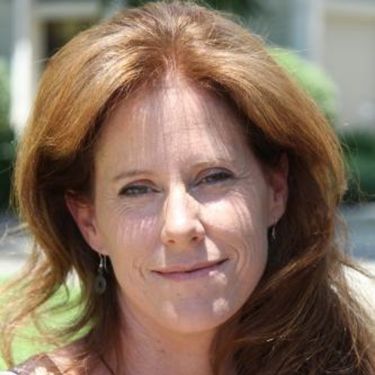
Topic: What is practice like in practice? Exploring model-based curriculum design and enactment
Abstract:
The current moment in science education is full of promise as the field matures in its understanding of what NGSS-type teaching is and how it might play out in classrooms. Theoretical constructs like framing, epistemic agency, meaningful sensemaking, purpose, and problematizing (to name just a few) are appearing with ever more frequency in the literature as researchers work to interpret various elements of dynamic learning environments grounded in scientific practice. In this talk I map this landscape onto the commitments to modeling and model-based reasoning that have provided the foundation of our curriculum development efforts in the MBER project in order to understand more about what is happening during enactment and inform future empirical and theoretical work.
Speaker Bio:
Cynthia Passmore is a professor specializing in science education in the University of California, Davis School of Education. She did her doctoral work at the University of Wisconsin, Madison and prior to that she was a high school science teacher. Her research focuses on the role of models and modeling in student learning, curriculum design and teacher professional development. She investigates model-based reasoning in a range of contexts and is particularly interested in understanding how the design of learning environments interacts with students’ reasoning practices.
March 23, 2022
Mon-Lin Monica Ko, University of Illinois Chicago
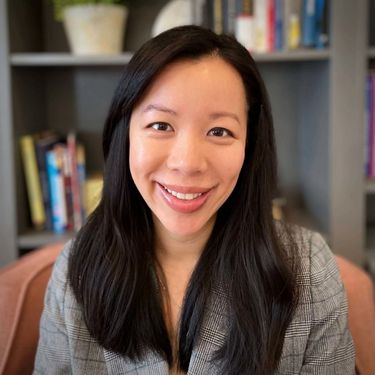
Topic: Leveraging curricular and students’ resources to instigate and sustain problematizing
Abstract:
How can curriculum materials, teachers, and students work together to promote meaningful science learning? This is a particularly important question to address, given the plethora of open-resource science curriculum that have become increasingly available to teachers. In this talk, I draw on my collaborations with secondary science teachers to illustrate the tensions and possibilities of using curriculum materials to support science instruction and discuss how enacting and reflecting on curriculum use can lead to productive adaptations and principled understandings about curriculum design.
Speaker Bio:
Mon-Lin Monica Ko is a Research Assistant Professor at the Learning Sciences Research Institute at the University of Illinois Chicago. Her research aims to make science learning more meaningful to secondary science students. She investigates how teachers develop and sustain instructional practices that redistributes epistemic agency and how co-design promotes teacher learning. She holds a PhD in Learning Sciences and a BA in Biology with an emphasis on Neurobiology from Northwestern University.
February 16, 2022
Joe Krajcik, Michigan State University
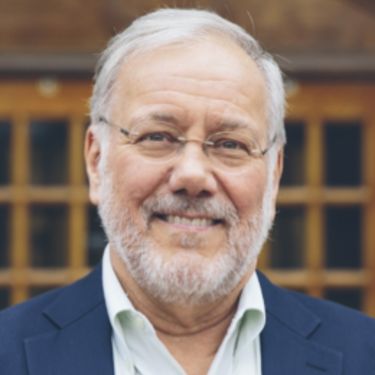
Topic: Designing Science Education Learning Environments to Support Learners in Developing Knowledge-in-Use
Abstract:
Our global community faces challenges of food and water security, climate change and destruction of nature, health, and education for all. These challenges will be solved if individuals throughout the globe have the science and engineering knowledge and collaborative capabilities to solve such complex problems. All learners throughout the globe need to experience science education in which they will develop usable knowledge of science. From making personal decisions about daily life issues to working in rewarding scientific careers, knowledge-in-use of science is essential. Knowledge-in-use is described as knowledge that learners can apply to make decisions, solve problems, innovate and learn more when needed.
How should science learning environments be designed to focus on developing knowledge-in-use where learners use the big ideas of science and scientific practices to make sense of phenomena and solve design problems? Investigating questions that students find meaningful has long been supported as a viable learning structure. Project-based Learning (PBL) structures science learning environments around questions that engage students in collaborative inquiry. Because PBL focuses on students and their interests, it is sensitive to the varied needs of diverse students with respect to culture, race, and gender. In this session, Krajcik will engage participants in how to design learning environments that align with the features of project-based learning and show how the various features of PBL are anchored in what is known about how students learn.
Speaker Bio:
Joseph Krajcik serves as director of the CREATE for STEM Institute and is the Lappan-Phillips Professor of Science Education and a University Distinguished Professor at Michigan State University. Throughout his career, Joe has focused on working with colleagues and science teachers to design and test project-based learning environments to reform science teaching practices and to research student learning and engagement. Joe served as president of the National Association for Research in Science Teaching (NARST), from which he received the Distinguished Contributions to Science Education Through Research Award in 2010. He served as lead writer for developing Physical Science Standards for the NGSS and the lead writer for the Physical Science Design team for the Framework for K – 12 Science Education. In 2020, Joe was elected to the National Academy of Education and received the prestigious McGraw Prize for Innovation in Pre-K-12 Education and in 2021, the International Society for Design and Development in Education Prize for Excellence in Educational Design. He has published over 100 peer reviewed manuscripts and his book on Project-based Learning is in its fifth edition.
October 27, 2021
Melanie Peffer, University of Colorado Boulder
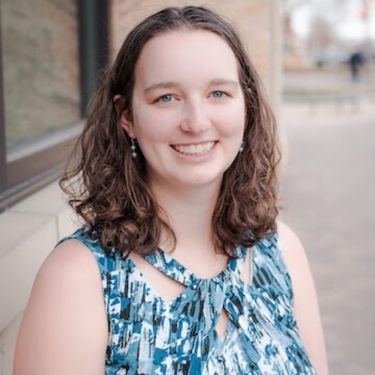
Topic: Biology Everywhere: Integrating experiences as biology education researcher and biology instructor to communicate biology to the general public
Abstract:
Where have you experienced biology today? Although we experience biology daily, many struggle to see the connection. Some don’t feel like they are a science or biology person, or think they can’t engage with biology, or view biology as simply a collection of abstract facts that don’t matter outside of the classroom. This ultimately leads to low science literacy and hurts society as people either choose not to engage with major science issues like conservation, climate change, or public health, or fall victim to competing predatory information. So, what do we do?
The bedrock of my book, Biology Everywhere, is that when we present science through the lens of daily experiences, it becomes relatable and accessible. Viewing science as meaningful to our lives fires the imagination, sparks curiosity, and encourages learning. It is easier to feel like a science person and confidently engage with science. Rather than an abstract collection of facts, science becomes a dynamic and fascinating process we engage in and with every day.
In my seminar, I’ll discuss the history of Biology Everywhere, from getting my doctorate in molecular biology, to crossing disciplines with a postdoctoral appointment in learning sciences, to my experiences teaching non-majors biology. I’ll also give examples from Biology Everywhere about how I’ve incorporated the real-world in the classroom, including how to effectively build bridges between biology and other disciplines, such as the arts.
Speaker Bio:
Melanie has a B.S. and Ph.D. in molecular biology from the University of Pittsburgh and completed postdoctoral training in learning sciences at Georgia State University. She is affiliated with the University of Colorado Boulder as a research scientist in the Institute of Cognitive Science and a teaching assistant professor with the Health Professions Residential Academic Program where she teaches introductory biology courses. Her research is focused on how people learn biology, with an emphasis on teaching about the nature of science knowledge and how we can use educational technologies to assess students’ understanding of science.
Melanie is the author of the best-selling book, Biology Everywhere: How the science of life matters to everyday life. Biology Everywhere is a journey through the science of life as told through our daily experiences. She is also the 2021 High Plains Library District Foundation’s writer in residence. She will be spending her residency working on a children’s spin off series of Biology Everywhere. The first book, Biology Everywhere: River Adventurers is due out in December 2021.
September 29, 2021
Gregory Radick, University of Leeds
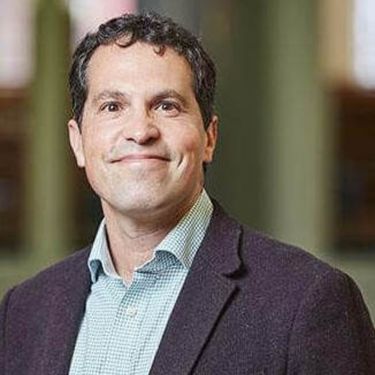
Topic: Genetics education for the real world
Abstract:
The traditional, start-with-Mendel introductory curriculum in genetics is, at its best, outstanding in helping students to learn to “think like a geneticist.” But is that an appropriate goal for genetics education in the 21st century? In this talk, I want to make the case for a genetics curriculum which aims less at creating geneticists than at improving students’ ability to cope well with the genetic information which increasingly surrounds them. I will dwell in particular on one attempt to “de-Mendelize” the genetics curriculum, putting much greater emphasis than is traditional on phenotypic variability and on the complex gene-gene and gene-environment causal interactions which bring about that variability. I will also discuss a BSCS Science Learning-Cornell project now underway to assess the impact on students of these alternative emphases.
Speaker Bio:
Gregory Radick is a Professor of History and Philosophy of Science at the University of Leeds. He has published widely on the history of biology and the human sciences after 1800, with particular emphases on Darwin and Darwinnpism; genetics and eugenics; and sciences of mind, language and behavior. He has also pursued more general questions about scientific knowledge, especially to do with the history-of-science counterfactuals (e.g.,”What would biology be like now if the Mendelians had not triumphed in the early 20th century?”). He currently serves as the co-Principal Investigator on the NSF-support project “Honoring the Complexity of Genetics: Exploring How Undergraduate Learning of Multifactorial Genetics Affects Belief in Genetic Determinism,” which builds on an earlier study on genetic determinism in the genetics curriculum. He is the author of The Simian Tongue: The Long Debate about Animal Language (awarded the 2010 Suzanne J. Levinson Prize of the History of Science Society for best book in the history of the life sciences and natural history) and the coeditor of The Cambridge Companion to Darwin.
August 25, 2021
Thomas M. Philip, University of California Berkeley
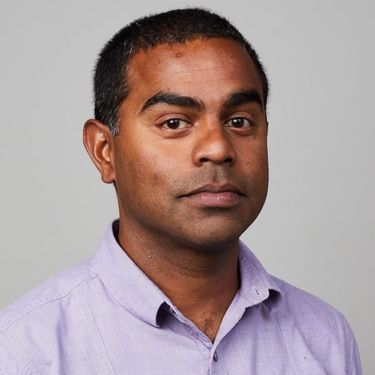
Topic: Learning as Entwined with Ideologies: Theoretical, Methodological, and Pedagogical Possibilities and Implications
Abstract:
In this talk, Thomas M. Philip will explore how ideologies, particularly racial ideologies, are intertwined with learning. Looking across multiple learning contexts, Philip will consider the pedagogical, theoretical, and methodological insights and possibilities when we attend to interaction and the local construction and contestation of ideologies.
Speaker Bio:
Thomas M. Philip is a Professor of Education at the University of California Berkeley. His research focuses on how teachers make sense of and address power and hierarchy in classrooms, schools, and society. His recent scholarship explores the possibilities and tensions with the use of artificial intelligence and digital learning technologies in classrooms. Philips received his Ph.D. in Cognition and Development and a B.S. in EECS from the University of California, Berkeley. His research has been recognized by multiple awards including the National Academy of Education/Spencer Postdoctoral Fellowship; the AERA Division C (Learning & Instruction) Jan Hawkins Award for Early Career Contributions to Humanistic Research and Scholarship in Learning Technologies; and the National Association for Multicultural Education’s Research Award.
July 21, 2021
Alexis Patterson, University of California Davis
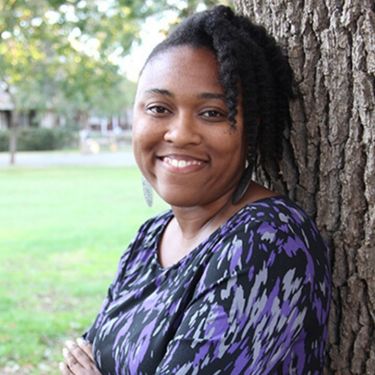
Abstract:
As the scientific and technological divide widens, access to quality science instruction has become a civil rights issue: those equipped with the knowledge and skill will remain caretakers of status and power. This inequality is especially salient for students in marginalized communities and schools where stereotypes fuel low expectations for academic achievement and success. For many students the classroom represents their earliest formal experience with both the content and process of science, placing science teachers in a unique and precarious position: getting students excited and engaged about science while simultaneously preparing the next generation of STEM professionals and scientifically literate citizens. We offer a model: (W)holistic Science Pedagogy (WSP). It is both a teacher- and student-centered approach of instruction to disrupt patterns and hierarchies. The WSP approach requires five commitments from the teacher: A commitment (1) to an ever-developing self-awareness, (2) to science and its practices, (3) to science as a transformative agent, (4) to their students’ social emotional wellness, and (5) to restorative practices. This talk will introduce the five commitments and examine these commitments within the context of science teaching.
Speaker Bio:
Alexis Patterson Williams, PhD, is an associate professor at the University of California, Davis. Dr. Patterson Williams’s research lies at the intersection of equity studies, social psychology, and science education. Her work explores 1) equity issues that arise from social hierarchies when students work together on group projects in science and 2) teacher development of practices that support equitable and robust interactions between students that can deconstruct implicit and explicit language and literacy hierarchies. Her recent project has led to the development of an educational framework, (W)holistic Science Pedagogy, with her colleague and sister scholar, Dr. Salina Gray.
June 30, 2021
Saul Perlmutter, Professor of Physics, UC Berkeley
Senior Scientist, LBNL
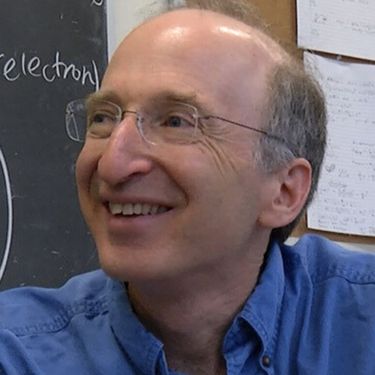
Topic: Science, Reality, and Credibility
Abstract:
There is a body of techniques and practices, a language and culture, that is usually implicitly taught by apprenticeship and osmosis to graduate students and postdocs in the sciences. This is the underpinning of an approach to building a credible sense of the “real world” that is shared by scientists, but not much used (or understood) by the rest of society. Equipping future generations with this scientific-style critical thinking could be one of our most reasonable defenses against confused thinking and misinformation, both major challenges to our democratic societies’ ability to make deliberative decisions. Can we make these implicit concepts explicit, and teach them to scientists and non-scientists alike? Could this help our society address difficult issues such as are raised by the global environment and economics? And how could citizen scientists use these tools to help build sources of credibility on the web and in the news? This talk is intended to start a discussion.
Speaker Bio:
Saul Perlmutter is a 2011 Nobel Laureate, sharing the prize in physics for the discovery of the accelerating expansion of the universe. He is a professor of physics at the University of California, Berkeley and a senior scientist at Lawrence Berkeley National Laboratory, where he leads the international Supernova Cosmology Project, the Berkeley Institute for Data Science and the Berkeley Center for Cosmological Physics. His interest in scientific-style critical thinking for scientists and non-scientists alike led to Berkeley courses called Sense & Sensibility & Science and Physics & Music, which he has been teaching for more than a decade. An author of over 200 scientific publications, Perlmutter has also written popular articles and appeared in numerous PBS, Discovery Channel, and BBC documentaries. In addition to other awards and honors, he is a member of the National Academy of Sciences and the American Academy of Arts and Sciences and a fellow of the American Physical Society and the American Association for the Advancement of Science.
May 26, 2021
Michael Menchaca, University of Hawai’i at Manoa
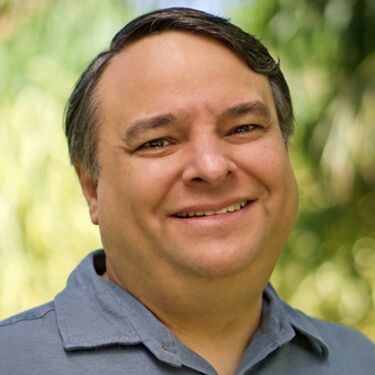
Topic: Post-Pandemic Education: Moving from Crisis Instruction to Optimal Teaching
Abstract:
Nearly a year out from official shut downs, significant teaching still occurs either completely online or in some combination. Even where spare, online delivery is evident and experts predict will continue to grow. Oft bearing the brunt of instructional blame, educators have been placed in the unenviable position of delivering crisis instruction without appropriate expertise or training. Educators truly do their best, learning while doing. How now do we move from this crisis mode to thoughtful planning and optimal delivery?
To begin to address the question, this presentation will focus on the following:
- Underpinning models for effective online and blended delivery
- Considerations for building community, both in class and out
- Considerations for formative and summative assessment
- Best practices for tools and strategies, including for professional development
The goal of the presentation is to provide an overview and begin a reflective dialogue about how ideas might best fit (or not) in your organization’s particular situation. Optimal design, while best founded on effective modeling and practice, must also be mission-aligned to organizational goals and objectives. Thus, time will be set aside for questions and dialogue.
Speaker Bio:
Michael Menchaca is professor and chair in the Department of Learning Design and Technology at the University of Hawai‘i at Mānoa. He specializes in distance education and conducts research in e-learning, technology integration, social justice with technology, and complex learning environments. He has designed and implemented online programs for over 20 years. He currently serves as editor for the IAFOR Journal of Education: Technologies and Education. In his spare time, he enjoys spending time with his family, reading, and traveling, and vows to be traveling as soon as safely possible.
May 19, 2021
Todd Campbell, University of Connecticut, & Okhee Lee, New York University
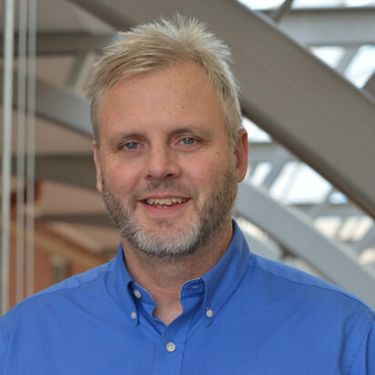
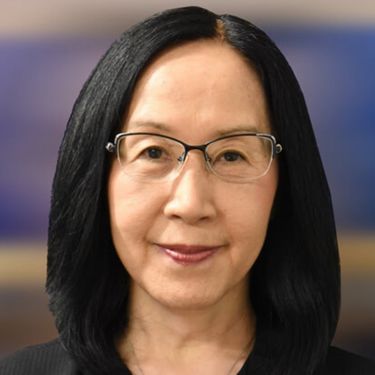
Topic: Teaching Science to Address Societally Pressing Problems: The COVID-19 Pandemic and Systemic Racism
Abstract:
The COVID-19 pandemic offers an unprecedented context to engage all students in societally pressing problems, while making visible the endemic nature of systemic racism that has led to disproportionate numbers of cases and deaths among racial and ethnic minority groups. We propose an instructional framework for STEM education with justice, by foregrounding justice and capitalizing on new advances in STEM disciplines to support justice-centered decisions and solutions to societally pressing problems. During the presentation, we will walk the participants through navigating data sources and share a sequence of science lessons to exemplify our instructional framework. We will conclude with a brief discussion of research questions as we continue to develop and refine our proposed instructional framework.
Speaker Bios:
Todd Campbell is the Department Head of Curriculum and Instruction and a Professor of Science Education in the Neag School of Education at the University of Connecticut. His research focuses on cultivating imaginative and equitable representations of STEM activity. This is accomplished in formal science learning environments through partnering with pre-service and in-service science teachers and leaders to collaboratively focus on supporting student use of modeling as an anchoring epistemic practice to reason about events that happen in the natural world.
Okhee Lee is a professor in the Steinhardt School of Culture, Education, and Human Development at New York University. Her research involves integrating science, language, and computational thinking with a focus on English learners/multilingual learners. She was a member of the NGSS writing team and served as leader for the NGSS Diversity and Equity Team. She was also a member of the Steering Committee for the Understanding Language Initiative at Stanford University.
April 28, 2021
Ann Edwards, WestEd
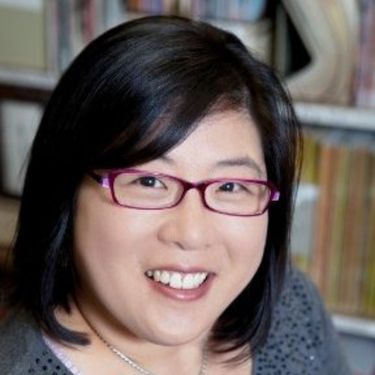
Topic: Advancing Quality Teaching: Professional Development in a Networked Improvement Community of Postsecondary Math Educators
Abstract:
Mathematics is the primary obstacle to college completion in US institutions of higher education. Over 60% of incoming community college students are required to take at least one remedial math course before they can enroll in college-credit courses; however, 80% of those students do not complete any college-level math course within 3 years, and are therefore unable to obtain a degree or credential or to transfer. In comprehensive 4-year institutions, approximately 20% of incoming students are placed into remedial math and about 60% do not complete a college-level math course within 2 years, significantly decreasing their likelihood of graduation. The Carnegie Math Pathways is a networked improvement community [NIC] of over 90 IHE’s aimed at dramatically improving these outcomes. A NIC is a form of social organization that brings the tools and processes of improvement science together with the learning structures of networks to enable a community of stakeholders to achieve a shared aim. The approach is explicitly designed to accelerate learning-by-doing and knowledge sharing in order not only to develop evidence-based solutions but also generate the know-how needed for those ideas to be effectively implemented at scale across contexts. This presentation will focus on Advancing Quality Teaching, an NSF-funded project that aimed to use networked improvement methods to develop and continuously improve professional learning opportunities for instructors in the Carnegie Math Pathways NIC. I will illustrate how we applied improvement methods to the problem of improving instructional practice and course outcomes, highlighting challenges we faced in the design and implementation of professional learning at scale as well as lessons learned about doing networked improvement in the messy real world.
Speaker Bio:
Ann R. Edwards is a Senior Research Associate in Mathematics at WestEd. Her work focuses in mathematics education, including research in the areas of mathematics cognition, instruction, curriculum, and teacher learning. She has also designed curricula and professional development at all grade levels K-16 as well as adult education. She brings a deep commitment to addressing issues of equity that shape mathematics teaching and learning. She is currently the Director of Research and Implementation for the Carnegie Math Pathways initiative, a network of faculty members, researchers, designers, students, and content experts committed to increasing student success in developmental mathematics and overall college and career outcomes. She is also the PI of the Scaling Up through Networked Improvement project (NSF), which studies the use of quality improvement tools in the support of institutional implementation of educational innovation at scale, and was co-PI of the Advancing Quality Teaching project (NSF), focused on developing professional development at scale for a national network of college mathematics faculty engaged in reform of entry level mathematics courses. She is also currently the co-PI of an IES-funded evaluation study of community college corequisite mathematics courses and a content lead for the NAEP Mathematics Framework revision. She has published in numerous journals and books including the NADE Digest, Journal of Teacher Education, Journal for Research in Mathematics Education, Teachers College Record, and the Handbook of Research on Learning and Instruction. Edwards received a BA in applied mathematics from Harvard University; and an MA and PhD from the University of California, Berkeley in education in mathematics, science and technology.
April 21, 2021
Jessica Parker, The Exploratorium, & Julie Yu, The Exploratorium
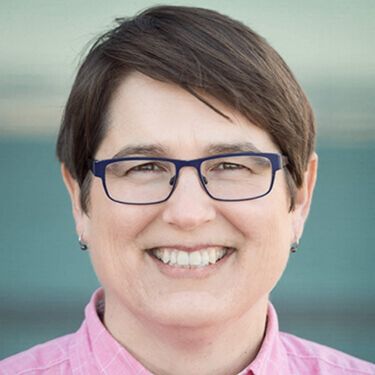
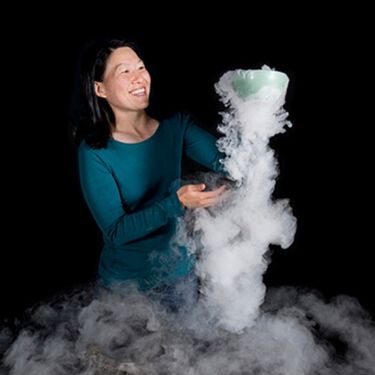
Topic: The Exploratorium’s Teacher Institute: Providing a Professional Home for Secondary Science Teachers and Leaders
Abstract:
The Exploratorium has been a professional home for science educators for over 40 years. Jessica Parker, the Director of Teaching and Learning, and Julie Yu, a Senior Scientist, will discuss the many ways the Teacher Institute supports secondary science teachers and leaders through sustained professional learning, educator networks, and free, teacher-tested resources. Our approach is designed around phenomena-based experiences that invite educators to engage as learners – to develop deeper science content understanding by learning in a way they are being asked to teach – and reflect on pedagogical moves modeled by facilitators. We will share program models, research projects, and online and in-person approaches that make the Exploratorium uniquely positioned to support secondary science teachers and leaders.
Speaker Bios:
Jessica Parker is the Director of Teaching and Learning at the Exploratorium. She manages a K-12 team made up of veteran science educators, PhD scientists, and educational researchers who support over 1300 teachers and leaders annually across five different programs. With 12+ years teaching in higher education and secondary classrooms, Jessica has a passion for STEM education, extensive experience in supporting professional learning networks, and expertise in digital media and learning and maker education. She is the author of Teaching Tech-Savvy Kids: Bringing Digital Media into the Classroom. Jessica completed her undergraduate and graduate work at the University of California, Berkeley; she has a BA in Mass Communication and a MA and a PhD in Education.
Julie Yu is a Senior Scientist at the Exploratorium, San Francisco’s museum of science, art, and human perception. She provides science content support throughout the museum and works with teachers to bring inquiry-based science learning to their classrooms. With a broad interest in all sciences, she has a PhD in chemical engineering from the University of California, Berkeley, with a minor in molecular and cell biology. Her work and research have spanned from viruses and stem cells to teacher learning and inquiry to concrete and cement. This has led to a myriad of opportunities, including teaching science to Tibetan monks and nuns, launching an explosion of 2000 ping pong balls, and acquiring a US patent. She is currently captivated with thinking about food as a way of bringing together key interests of science, culture, identity, and eating.
March 31, 2021
Jill Wertheim, Stanford University
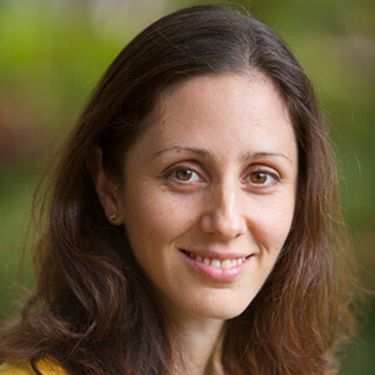
Topic: Building Capacity for NGSS Implementation using Performance Assessments
Abstract:
Assessments can be a powerful lever for advancing priorities in science education including supporting 3-dimensional reasoning, addressing inequities in access and outcomes, and building student agency. Yet, few educators have access to assessments designed for these purposes, limiting their ability to inform and improve their progress toward their goals. In this talk, I will discuss how the Stanford NGSS Assessment Project (SNAP) is using a blend of synchronous and asynchronous online courses, local communities of practice, and direct support to build capacity for the principled design and use of science performance assessments tailored to the specific context in which they will be used. Insights from case studies that are currently underway in large urban districts in California will illustrate ways districts are leveraging the potential of these courses to be implemented at scale to support district-wide reforms.
Speaker Bio:
Jill Wertheim is the Director of the Stanford NGSS Assessment Project (SNAP) at the Stanford Center for Assessment, Learning, and Equity (SCALE). Dr. Wertheim’s work focuses on the design, development, and use of performance assessments as part of a balanced system of assessment in classrooms, schools, districts, and states. Prior to coming to Stanford, Dr. Wertheim studied how assessments can be used to uncover students’ ideas about earth science at AAAS Project 2061 and expanded this work into geography education at National Geographic. She holds a PhD in the Geological Sciences from University of California, Santa Barbara and a BA in Geology and Music from Middlebury College.
March 17, 2021
Batya Friedman, University of Washington, & Nick Logler, University of Washington
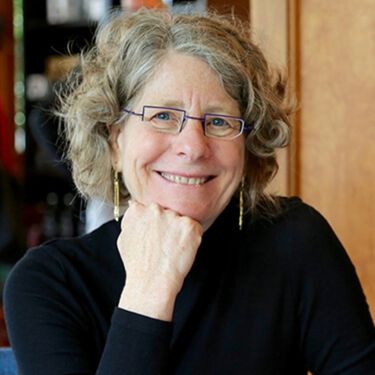
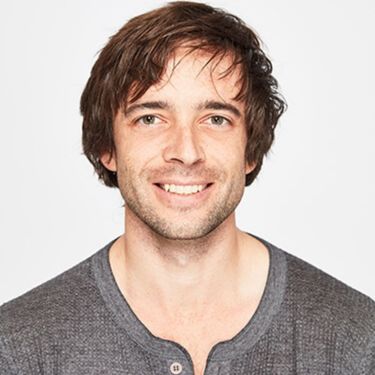
Topic: Value Sensitive Design: Engaging Moral and Technical Imaginations
Abstract:
Tools and technologies are fundamental to the human condition. They do no less than create and structure the conditions in which we live, express ourselves, enact society, and experience what it means to be human. They are also the result of our moral and technical imaginations. Yet, with our limited view, it is not at all obvious how to design tools and technology so that they are more likely to support the actions, relationships, institutions, and experiences that human beings care deeply about – a life and society of human flourishing. Value Sensitive Design (VSD) was developed as an approach to address this challenge from within technical design processes. In this talk, we will provide an introduction to Value Sensitive Design, foregrounding human values in the technical design process. Our remarks will situate VSD within a broader discourse on sociotechnical systems and present VSD’s core theoretical constructs. Then we will introduce some methods from VSD, along the way demonstrating two methods – Envisioning Cards and value scenarios – in the context of a design activity. Next we’ll discuss some current examples of applying VSD, first to the design of robots for healthcare and then to the invisible materiality of information technology. In doing so, we will explore technology trends at the cusp of the 21st century from a VSD perspective. Thinking longer-term and systemically, we will bring forward a range of potential challenges and design opportunities in light of these trends. Our comments will engage individual lives, society writ large, what it means to be human, the planet and beyond.
Speaker Bios:
Batya Friedman is Professor in the Information School and holds adjunct appointments in the Allen School of Computer Science & Engineering, and the Department of Human Centered Design and Engineering at the University of Washington. She co-directs the Value Sensitive Design Lab and the UW Tech Policy Lab. Batya pioneered value sensitive design (VSD), an approach to account for human values in the design of information systems. First developed in human-computer interaction, VSD has since been used in architecture, civil engineering, computer security, energy, human-robotic interaction, information management, land use and transportation, legal theory, and moral philosophy. She is currently working on multi-lifespan design and on methods for envisioning – imagining new ideas for leveraging information systems to shape our futures. Voices from the Rwanda Tribunal is a first project in this multi-lifespan design research program. Her 2019 book co-authored with David Hendry provides a comprehensive account of value sensitive design and is titled Value Sensitive Design: Shaping Technology with Moral Imagination. In 2012 Batya received the ACM-SIGCHI Social Impact Award and the University Faculty Lecturer award at the University of Washington, in 2019 was inducted into the CHI Academy, and in 2020 received an honorary doctorate from Delft University of Technology. She received both her B.A. and Ph.D. from the University of California at Berkeley.
Nick Logler is a PhD Candidate in the Information School at the University of Washington. He is a research assistant in the Value Sensitive Design Lab and the Tech Policy Lab. His work explores our relationship with everyday technologies and materials. He has asked undergraduates, children, and families to disassemble desktop printers to investigate how we expand our understanding of what is and can be a material, how context shapes our understanding of material systems, and how these understandings shape how we live in a material world. Prior to joining the PhD program at the Information School Nick helped start and run a makerspace in Newport, Rhode Island that works with young people, teachers, and school systems. He received his B.A. from Loyola University Maryland, and his M.A. from American in Washington, D.C.
February 3, 2021
Heidi Carlone, The University of North Carolina at Greensboro
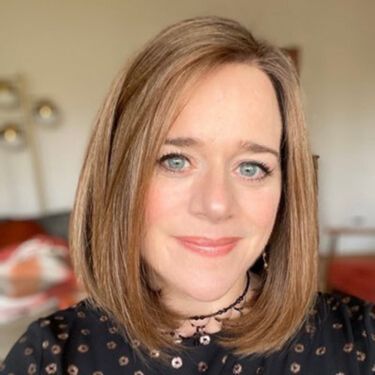
Topic: Studying and designing for diverse youths’ STEM-linked identity work
Abstract:
I am passionate about studying, and now designing, science, technology, and engineering (STE) learning settings that have the potential to redress public school’s practices of epistemic injustice stemming from racism, sexism, ableism, and classism. Minoritized youth, especially those in schools that serve high populations of students living in poverty, are not given equal access to be knowledge creators (epistemic agents) in classrooms. This situation often worsens as students move through the K-12 public school system. After years of studying the culture of K-12 science and engineering learning settings and the identities that are celebrated and marginalized within them, my work is shifting to design-based research approaches. I have begun to co-design STE learning settings to cultivate diverse youths’ disciplinary-linked identity work, and I also co-created a network to support elementary teachers who teach in schools serving high populations of minoritized youth and youth whose families are socioeconomically disadvantaged (STEM Teacher Leader Collaborative). In this talk, I discuss lessons learned from my studies of culture and youths’ identity and how I have applied those lessons to design for youths’ disciplinary-linked identities. My move to designing and studying for identity work represents what I hope will be a shift for our entire field of science education; a move that puts us closer to what Bent Flyvbjerg (2001) calls “social science that matters.”
Speaker Bio:
Dr. Heidi Carlone, Hooks Distinguished Professor of STEM Education at University of North Carolina Greensboro, works to make science and engineering (STEM) pathways more accessible and equitable for historically underserved and underrepresented populations. Three questions drive her work: (1) How can innovative K-12 instruction cultivate STEM identities for diverse youth? (2) How can we enrich K-12 diverse youths’ STEM learning ecologies (support systems) in sustainable ways? (3) How can we design professional learning networks to support, nurture, and celebrate rigorous and equitable STEM teaching and retain excellent teachers? She publishes and presents her work in national and international venues and has earned over $5 million dollars in funding from local and national foundations. She has received a number of awards in her academic career including: The UNCG Alumni Teaching Excellence Award, the UNCG School of Education Teaching Award, the Early Career Research Award from the National Association for Research in Science Teaching, the Early Career Development Award (CAREER) from the National Science Foundation, and Sallie Mae First Year Teacher of the Year in Wake County Schools.